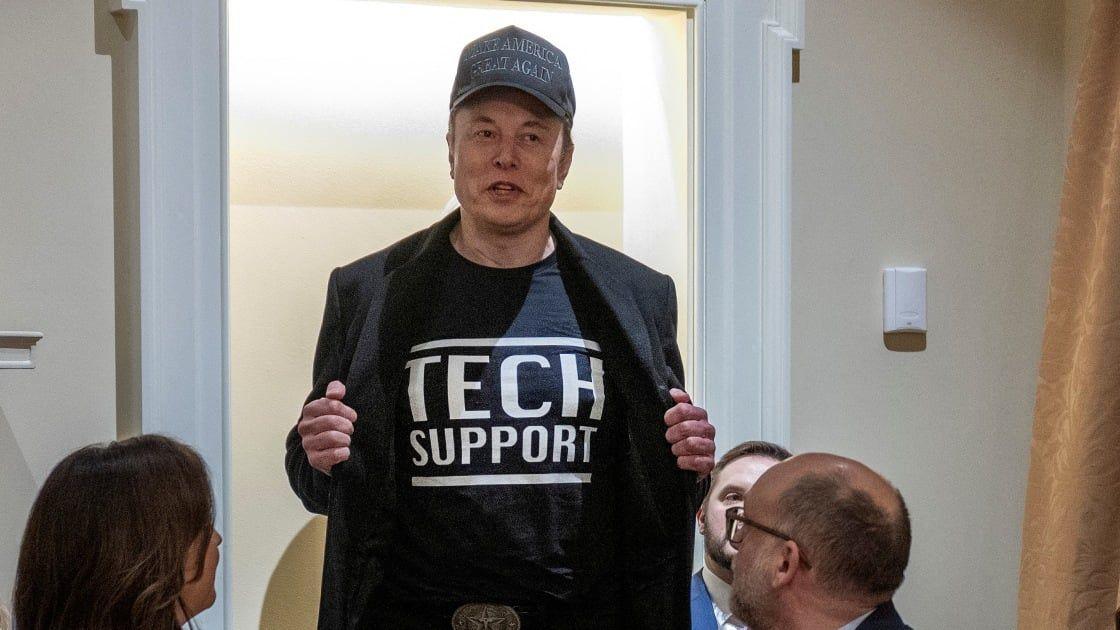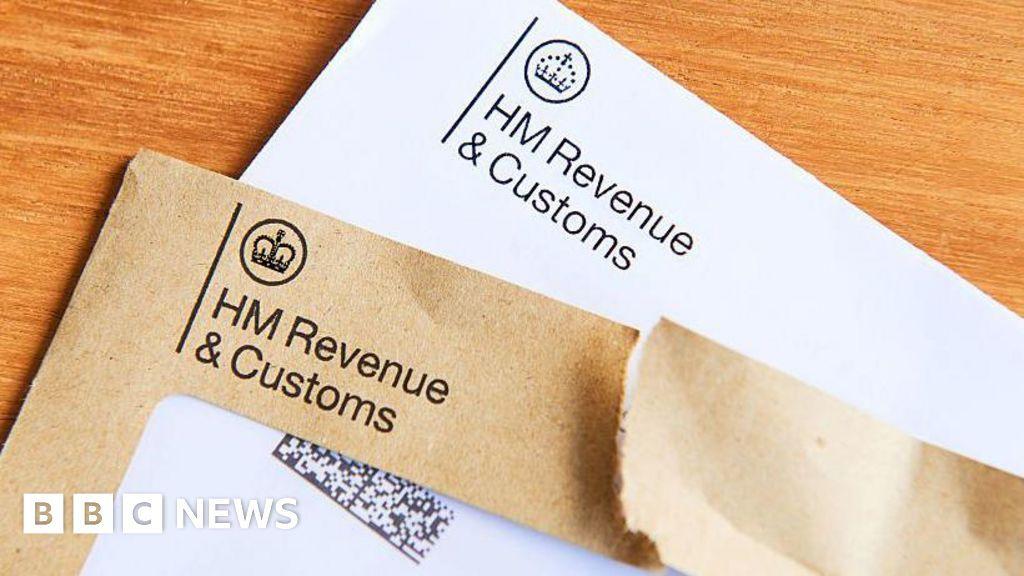IRS Plans to Leverage AI Amid Massive Workforce Cuts
2 Sources
2 Sources
[1]
IRS could use AI to replace workers after mass layoffs
The US Internal Revenue Service (IRS) plans to use AI to replace workers having made extensive cuts to its workforce. US Treasury Secretary Scott Bessent discussed the budget proposal in a House Appropriations Committee hearing, with reports confirming the IRS has lost almost a third of its tax auditors since the start of the second Trump administration - with Elon Musk's Department of Government Efficiency (DOGE) trimming the workforce through layoffs and 'deferred resignations'. Bessent argued further proposed reductions and plans to push further layoffs would not affect the agency's tax collection abilities thanks to the "current AI boom" - although he didn't explain exactly how the agency will be deploying the tech. The ramifications of personnel reductions will not result in a loss of capability, despite the majority of those fired being revenue agents, with 31% of the IRS's revenue agent workforce laid off. "I believe through smarter IT, through this AI boom, that we can use that to enhance collections and I would expect that collections would continue to be very robust as they were this year," Besset said. The 25% reduction in workforce for the IRS could lead to potential delays in tax refunds for American taxpayers, but it seems the cuts are likely to continue. Musk's DOGE department has also cancelled multiple government contracts in the name of cost-cutting, including with IBM, Deloitte, and Gartner - to name just a few. Over half of UK businesses who replaced workers with AI now report regretting their decision, and there's huge amounts of uncertainty - with 38% of leaders not fully understanding AI's impact in their business, and 25% unsure of which roles are most at risk. Tech giants including IBM, CrowdStrike, and, most recently Google, have been cutting staff in recent months, with many are planning to replace these jobs with AI.
[2]
After mass layoffs, IRS to plug holes with AI
The IRS is finding "smarter" IT solutions to help tax collection, which may mean agent bots are on the horizon. Credit: Jordan Vonderhaar / Bloomberg via Getty Images The Internal Revenue Service (IRS) has plans to take advantage of the "AI boom" to fill glaring workforce gaps, following the layoff of thousands of tax agents. In a May 6 oversight hearing of the House Appropriations Committee, U.S. Treasury Secretary Scott Bessent explained that the agency would be leaning into AI solutions in order to accommodate further reductions in the IRS' budget and staff and not fall behind on tax collection. The Treasury's budget proposal includes the removal of another 40,000 jobs. According to Bessent, proposed cuts to the agency's IT budget could be an opportunity to modernize and restructure the agency's existing IT infrastructure, as the current administration hones in on "wasteful" spending. "I believe, through smarter IT, through this AI boom, that we can use that to enhance collections. And I would expect that collections would continue to be very robust, as they were this year," he said. "IRS already uses AI for business functions including operational efficiency, compliance and fraud detection, and taxpayer services," the agency told the Register. The tax agency has lost about 11 percent of its workforce since Trump appointee Elon Musk set its sights on downsizing the federal government through the Department of Government Efficiency ("DOGE) -- Musk has reportedly set a goal of trimming the IRS down by at least 40 percent, with internal memos alerting staff to biweekly Reduction in Force (RIF) notices. According to a recent report by the Treasury Inspector General for Tax Administration (TIGTA), an agency watchdog, the majority of those cuts have affected revenue agents. Between January and March, 31 percent of agents have been terminated or taken a deferred resignation plan. That's around 3,600 auditors now off the job. Elsewhere in the federal government, agencies are implementing more AI solutions at the behest of the administration's Big Tech leaders. Supplementing President Trump's executive orders and updated policies on the federal government's AI use, generative AI has become new priority items for the Department of Defense, the Food and Drug Administration (FDA), and the Department of Health and Human Services (HHS). In February, Musk announced he was developing an AI chatbot to analyze government contracts and "increase productivity" among U.S. General Services Administration (GSA) employees. DOGE has also reportedly begun staffing a project to place AI agents in government offices. Musk was later accused of directing DOGE to use AI to surveil internal communications between federal workers, including employees at the Environmental Protection Agency (EPA).
Share
Share
Copy Link
The US Internal Revenue Service (IRS) is turning to AI technologies to maintain tax collection efficiency after significant layoffs. This move comes as part of broader government efforts to reduce federal workforce and modernize operations.

IRS Workforce Reduction and AI Integration Plans
The Internal Revenue Service (IRS) is facing significant changes as it plans to integrate artificial intelligence (AI) technologies to maintain its tax collection capabilities amid extensive workforce cuts. This shift comes as part of a broader initiative by the current administration to reduce the size of the federal government and modernize its operations
1
2
.Massive Layoffs and Budget Cuts
The IRS has experienced a substantial reduction in its workforce, losing approximately 11% of its staff since the implementation of downsizing efforts by the Department of Government Efficiency (DOGE), led by Elon Musk. The cuts have disproportionately affected revenue agents, with 31% of the agency's revenue agent workforce laid off between January and March
2
.U.S. Treasury Secretary Scott Bessent discussed the budget proposal in a House Appropriations Committee hearing, revealing plans for further reductions:
- An additional 40,000 jobs are proposed to be cut from the agency
2
. - The IT budget is facing potential cuts, which Bessent views as an opportunity for modernization
2
.
Leveraging AI to Fill the Gap
To address the workforce shortage and maintain tax collection efficiency, the IRS is turning to AI solutions:
- Bessent emphasized the potential of the "current AI boom" to enhance collections and maintain robust performance
1
. - The IRS already utilizes AI for various business functions, including operational efficiency, compliance, fraud detection, and taxpayer services
2
. - The agency plans to implement "smarter IT" solutions, potentially including AI-powered agent bots
2
.
Related Stories
Broader Government AI Initiatives
The IRS's move towards AI integration aligns with a larger trend across federal agencies:
- The Department of Defense, Food and Drug Administration (FDA), and Department of Health and Human Services (HHS) have prioritized generative AI implementation
2
. - Elon Musk announced the development of an AI chatbot to analyze government contracts and increase productivity among U.S. General Services Administration (GSA) employees
2
. - DOGE has reportedly begun staffing a project to place AI agents in government offices
2
.
Potential Implications and Concerns
While the IRS and other agencies push forward with AI integration, several concerns have emerged:
- The extensive cuts to the IRS workforce, particularly revenue agents, may lead to potential delays in tax refunds for American taxpayers
1
. - There are uncertainties about the effectiveness of AI in replacing human workers, with over half of UK businesses reporting regret after replacing workers with AI
1
. - Concerns have been raised about the use of AI for surveillance, with Musk accused of directing DOGE to use AI to monitor internal communications between federal workers
2
.
As the IRS and other government agencies continue to explore AI solutions, the balance between efficiency, job preservation, and ethical considerations remains a critical point of discussion in the ongoing digital transformation of the U.S. government.
References
Summarized by
Navi
[2]
Related Stories
DOGE Accelerates AI Deployment in Government, Raising Concerns Amid Job Cuts
11 Mar 2025•Technology

IRS Pauses Modernization Efforts to Reassess AI Integration in Tax System
15 Mar 2025•Technology

AI to Evaluate Federal Workers' Job Justifications in Controversial DOGE Initiative
25 Feb 2025•Policy and Regulation

Recent Highlights
1
ByteDance's Seedance 2.0 AI video generator triggers copyright infringement battle with Hollywood
Policy and Regulation

2
Demis Hassabis predicts AGI in 5-8 years, sees new golden era transforming medicine and science
Technology

3
Nvidia and Meta forge massive chip deal as computing power demands reshape AI infrastructure
Technology





